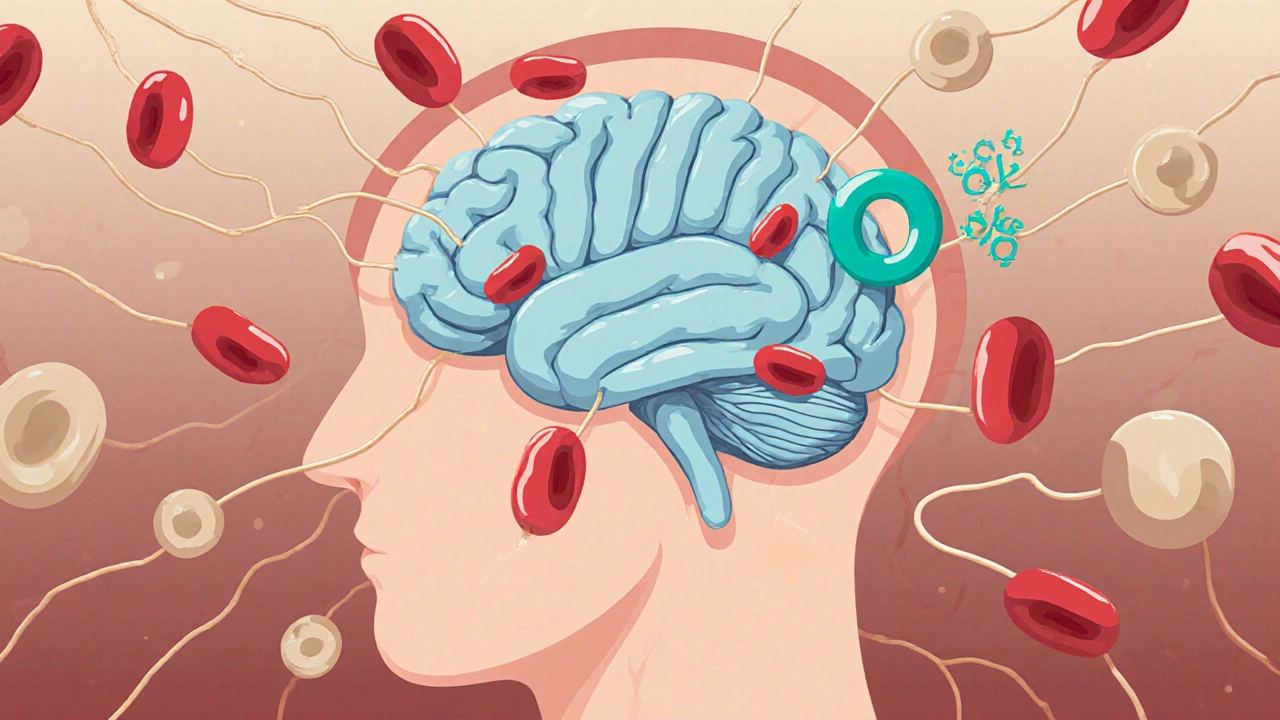
Nutritional Anemia and Brain Power: How Deficiencies Impact Cognitive Function
Explore how iron, B12, and folate deficiencies cause anemia and impact brain health, with symptoms, science, and practical steps to protect cognition.
When dealing with nutritional anemia, a condition where the blood lacks enough healthy red cells because the body doesn’t get the right nutrients. Also known as iron‑deficiency anemia, it often shows up as fatigue, pale skin, shortness of breath, and reduced exercise capacity. This condition is more than just feeling tired; it signals that essential minerals or vitamins are missing from the diet.
One of the biggest drivers is iron deficiency, insufficient iron that hampers hemoglobin production. Without enough iron, the body can’t manufacture the protein that carries oxygen, so every cell gets less fuel. Another key player is vitamin B12 deficiency, a lack of B12 that disrupts DNA synthesis in red blood cells. Even if iron levels are okay, low B12 can still cause the marrow to release immature, non‑functional cells. nutritional anemia also pops up when folate deficiency, a shortage of folic acid needed for red blood cell formation creeps in, especially in people with poor diets or high alcohol intake.
The body responds best when you fix the missing nutrient at the source. Iron‑rich foods like red meat, lentils, spinach, and fortified cereals are first‑line choices. Pairing iron with vitamin C (think orange juice) boosts absorption dramatically. For B12, animal products such as meat, eggs, and dairy are the primary supply, but many vegetarians rely on fortified plant milks or a regular B12 injection schedule. Folate comes from leafy greens, beans, and citrus fruits; in pregnancy, doctors often recommend a daily folic‑acid pill to stay ahead of the need.
When diet alone can’t keep up—perhaps due to digestive issues, strict vegan diets, or chronic blood loss—targeted supplementation becomes essential. Iron tablets (typically ferrous sulfate) are the go‑to, but they can cause stomach upset, so a slow‑release formula or taking them with food may help. B12 can be given orally in high doses or via intramuscular shots for quicker results. Folate supplements are simple pills that many over‑the‑counter brands sell as “folic acid.” In each case, the dosage depends on the severity of the deficiency, the patient’s age, and any underlying health conditions.
Monitoring is just as important as the treatment itself. Blood tests that check hemoglobin, hematocrit, ferritin, serum B12, and folate levels let doctors see whether the plan is working. If hemoglobin rises steadily over a few weeks, it signals that the chosen strategy is on track. If not, the doctor may look for hidden culprits like chronic inflammation, gastrointestinal bleeding, or medication interactions that block nutrient absorption.
Beyond the labs, lifestyle tweaks can speed recovery. Regular moderate exercise improves circulation and stimulates red blood cell production, while adequate sleep supports overall marrow health. Limiting coffee or tea around meal times helps because tannins can hinder iron uptake. Lastly, staying hydrated keeps blood volume optimal, making every red cell work more efficiently.
Below you’ll find a curated list of articles that dive deeper into specific drugs, supplements, and health tips related to nutritional anemia. Whether you’re looking for a comparison of iron tablets, guidance on B12 injections, or broader advice on diet‑based strategies, the collection offers practical insight you can act on right away.

Explore how iron, B12, and folate deficiencies cause anemia and impact brain health, with symptoms, science, and practical steps to protect cognition.